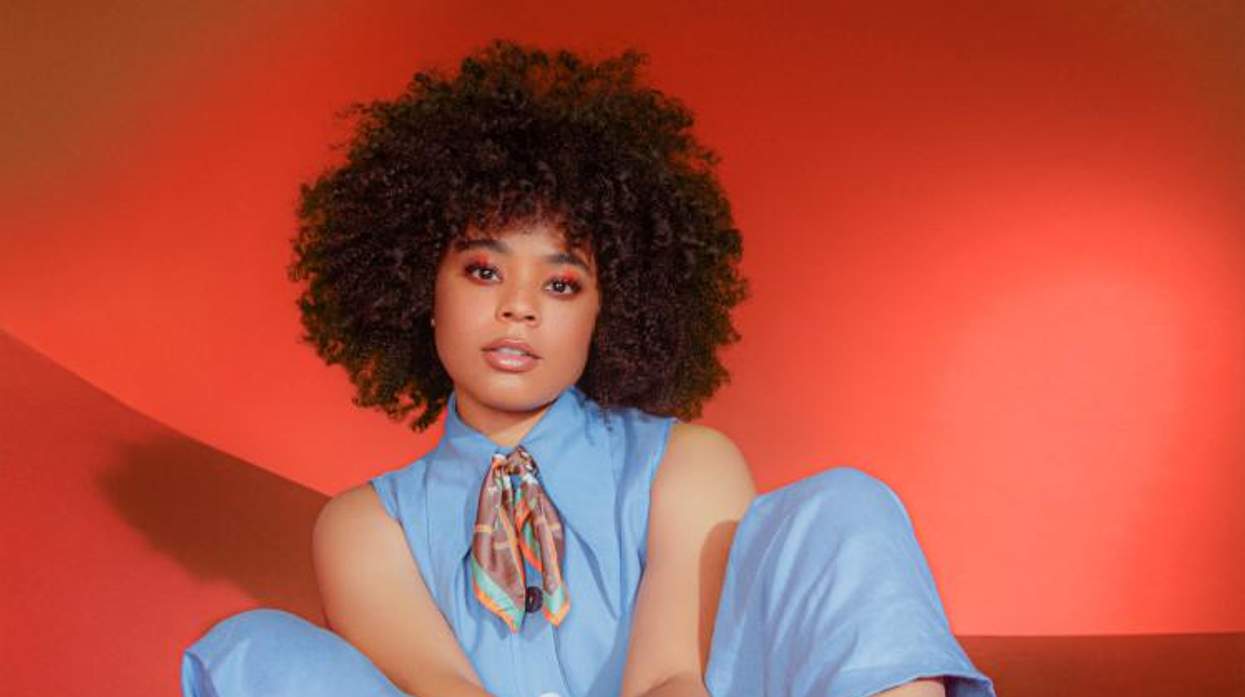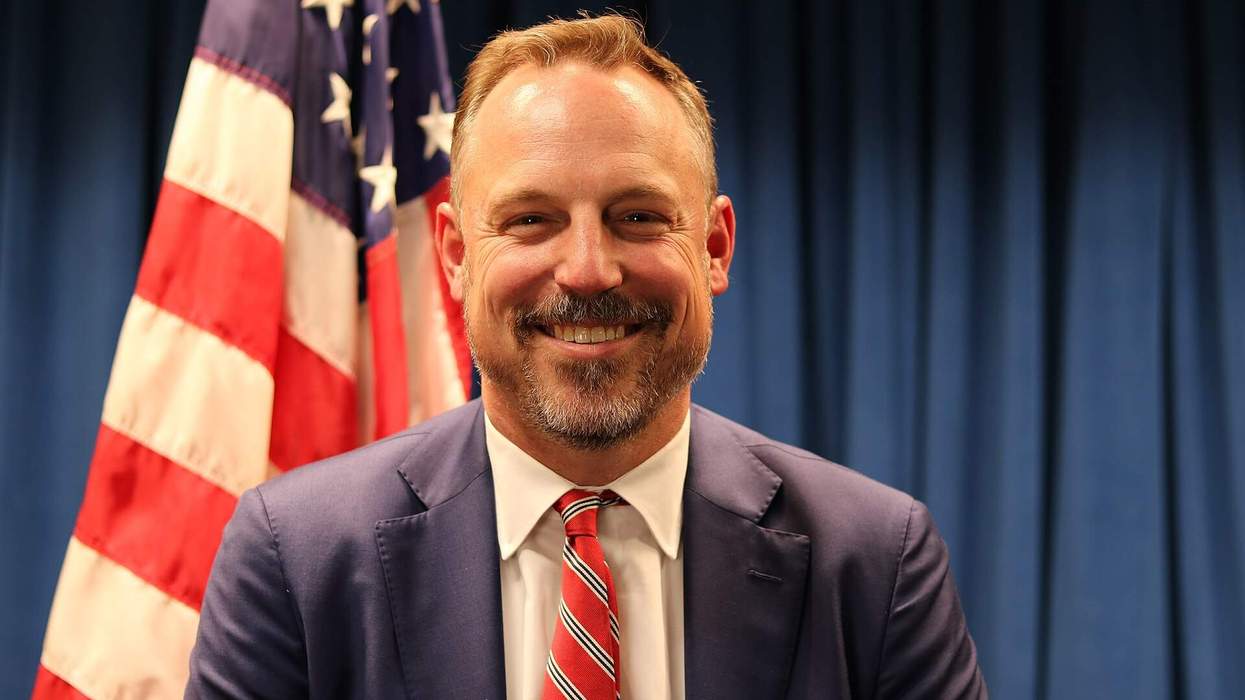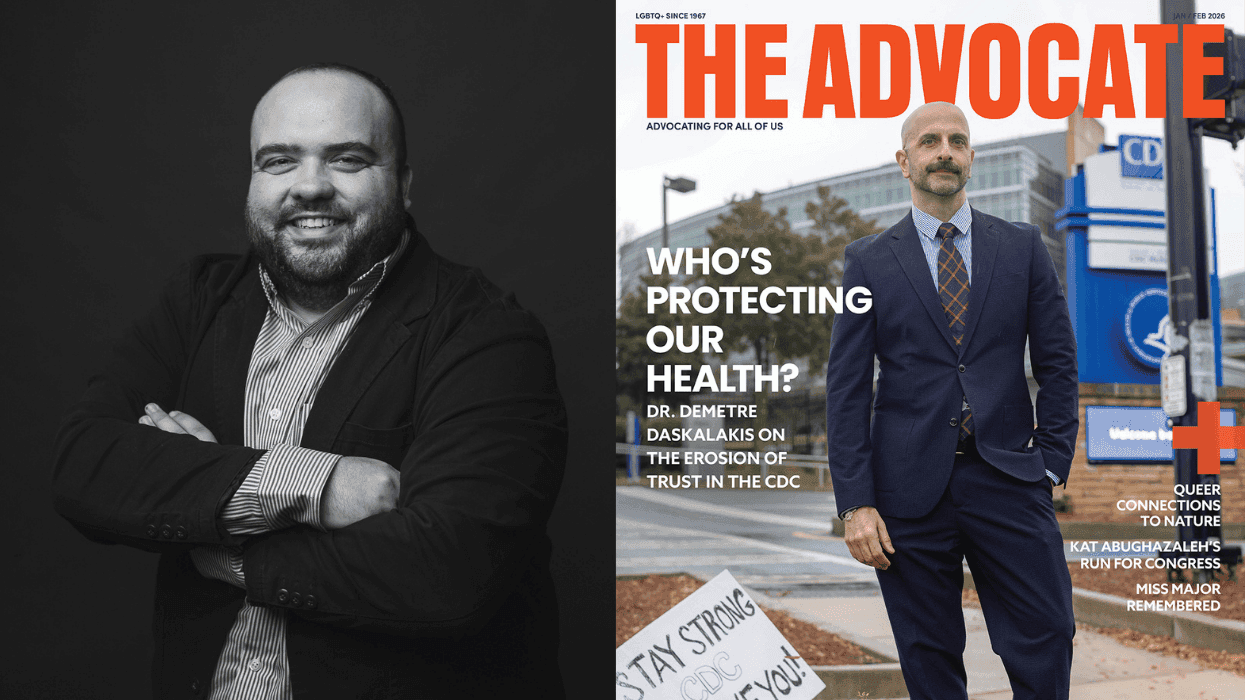This interview was originally conducted for the LGBTQ&A podcast.
People in the music industry used to doubt Tayla Parx's talents because of her age. Not only has she proven them wrong, but at 26, Parx has already written songs for some of the most famous singers and bands in the world like Mariah Carey, Jennifer Lopez, Christina Aguilera, Janelle Monae, Alicia Keys, Kesha, Khalid, BTS, and Panic! at the Disco, as well as some of Ariana Grande's most popular hits, including "7 Rings," "NASA," "My Everything," and "Thank U, Next."
Now Parx sees her youth as an advantage and something to embrace. When she started her career, everything she was experiencing in her life was happening for the first time: first love, first heartbreak. And she was able to bring that freshness and urgency to her music.
"It's what makes you feel that artist and lyrics a little bit more," she says on this week's LGBTQ&A podcast. When she's writing for herself, the bisexual artist stays away from gendering any of her lyrics. "There's that side of me that doesn't want to shut [a song] off from being about whatever gender. I don't think you should exclude people or their listening experience just because you decided to say 'him' or 'her.' I think that it allows for people to say, 'Oh, this song could be about anybody, and I can sing it too.'"
Parx's queerness is another advantage. "When you've had your own trials and your own tribulations," she says, when you've had to learn to accept yourself for not fitting into what society views as "normal" or "perfect," it's easier to show that acceptance to others.
"You're able to walk into a situation with an open heart, in my opinion. Or a lot more open than the average person, who maybe didn't have to experience some of the things that you're talking about," Parx says. "A massive part of being a songwriter is being able to have somebody, whether it's a stranger or your best friend, walk into that room and you accept them for what they are."
With a new album coming out this fall (and a groovy new single featuring her silky-smooth vocals, "Dance Alone," out now), Parx is poised to no longer be the music industry's best-kept secret. "The music that's coming out of me now is more on what's going on in the world...And I think that the music after this is going to help us get through it all."
Read highlights from the interview below and click here to listen to the full interview.
Tayla Parx on not including pronouns in any of her music:
I think that it was something that started to do right before I started to work on my album, We Need To Talk. And I knew that I'm bi, so I was also like, "Well, there's that side of me that doesn't want to shut it off from being whatever gender." Because it hasn't been either/or gender or at any one point in life.
I also know that I have a lot of fans that feel the same exact way that I do. And I have a lot of girl fans and I have a lot of guy fans and I have had a lot of them or they fans...I was like, "I don't want to neglect people who aren't so literal with whatever their pronoun is."...I don't think that you should exclude people or their listening experience, just because you decided to say him or her. I think that it allows for people to say, "Oh, this song could be about anybody and I can sing it too."
On how being queer teaches you acceptance, which she brings to her songwriting:
I think that it's acceptance. I think that we've had to learn how to...whether it's you're accepting something that is different than you or whether you're accepting what you are. And I think a massive part of being a songwriter is being able to have somebody, whether it's a stranger or your best friend, walk into that room and you accept them for what they are. And when you've had your own trials and your own tribulations with doing that, it's a lot easier to do that with somebody else. So you're able to walk into the situation with an open heart, in my opinion. Or a lot more open than the average person who maybe didn't have to experience some of the things that you're talking about.
On labeling sexuality and music genres:
I think that we have a really bad thing in our society and wanting to label everything. Whether it's people's sexuality or whatever it is they want to label [a song] so that it can be marketed properly, I guess. I don't know what that means. What does it matter what somebody's color is or sexual orientation? What does it matter? I don't think it's ever mattered to me, but then you start to realize that it really matters so much to the rest of the world to place a label. And maybe it just makes it easier to digest...but I don't think that's something that I'll ever understand. All that I can do is really continue to say, "Hey, look for every time that you think you can label it, here's the complete opposite perspective."
Click here to listen to the full interview with Tayla Parx.
LGBTQ&A is produced by The Advocate, in partnership with GLAAD.















Charlie Kirk DID say stoning gay people was the 'perfect law' — and these other heinous quotes
These are some of his worst comments about LGBTQ+ people made by Charlie Kirk.